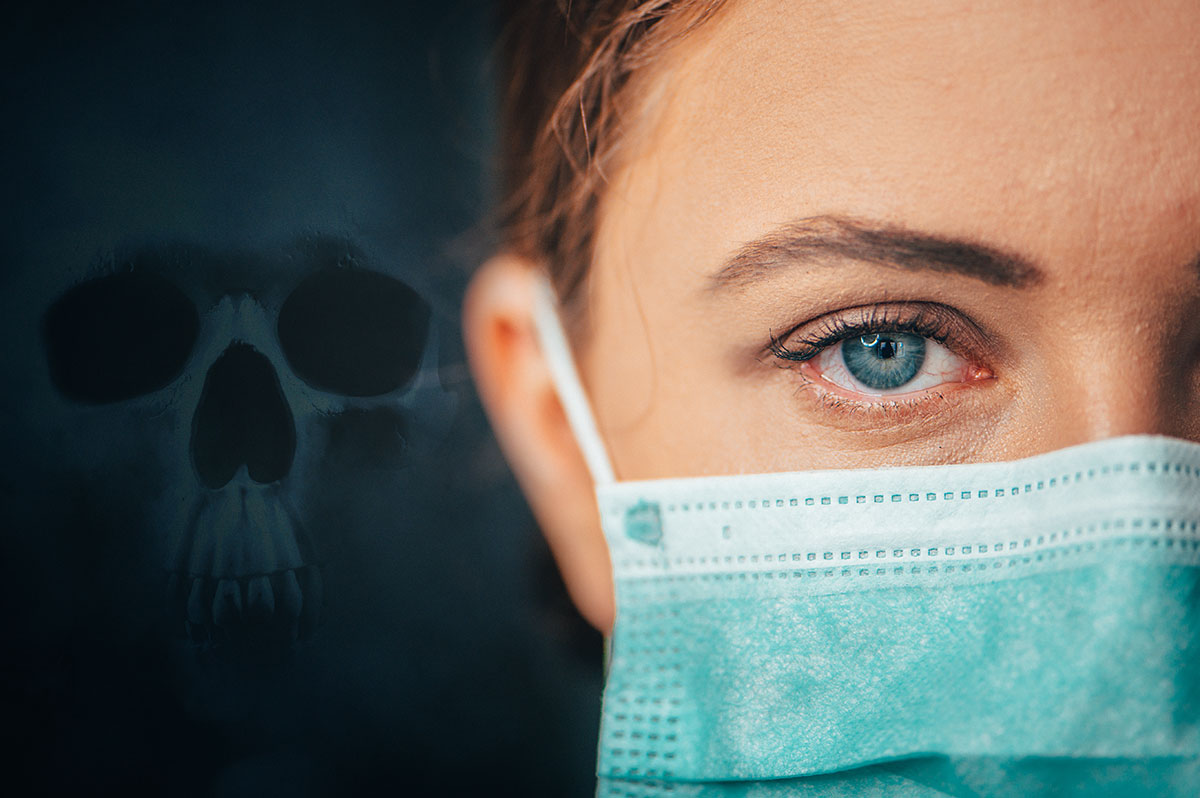Important scientific studies have been conducted into the consequences of wearing a face mask, and the risks it entails for your health and that of your loved ones. This article by renowned health expert Dr. Russel Blaylock M.D. explains some of these health hazards associated. Dr. Blaylock is a nationally recognized board-certified neurosurgeon, health practitioner, author, and lecturer.
✔︎ FACT CHECKED:
scientific references At the end of this article
Reduction of oxygen content
and accumulation of carbon dioxide
Wearing a face mask results in a drop in oxygen levels in the blood. This can lead to hypoxia. Hypoxia is a condition in which tissues in the body as a whole or in a certain part of the body are not supplied with enough oxygen.
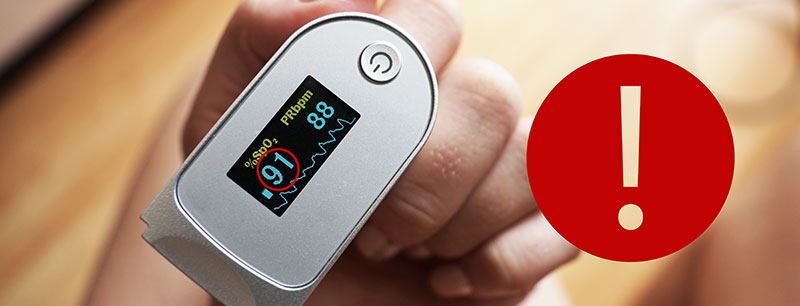
In addition, a face mask also ensures accumulation of carbon dioxide (CO2); hypercapnia. Hypercapnia is a condition in which too much carbon dioxide is present in the blood. Often this is the result of hypoventilation or disturbed breathing where not enough oxygen enters the lungs and not enough carbon dioxide is emitted. Some other causes are also known for hypercapnia, including some lung diseases. The mild to severe symptoms include disorientation, confusion and fatigue.
Both hypercapnia and hypoxia affect a person's health in various harmful ways, potentially leading to even life-threatening complications.
In which ways and from which studies this is shown, we have listed below for you. An important preliminary note is that many of the studies involve surgical face masks . Nevertheless, it is plausible that the effects to an equal or lesser extent also relate to the face masks that you may be expected to wear.
1. Face-masks cause headache
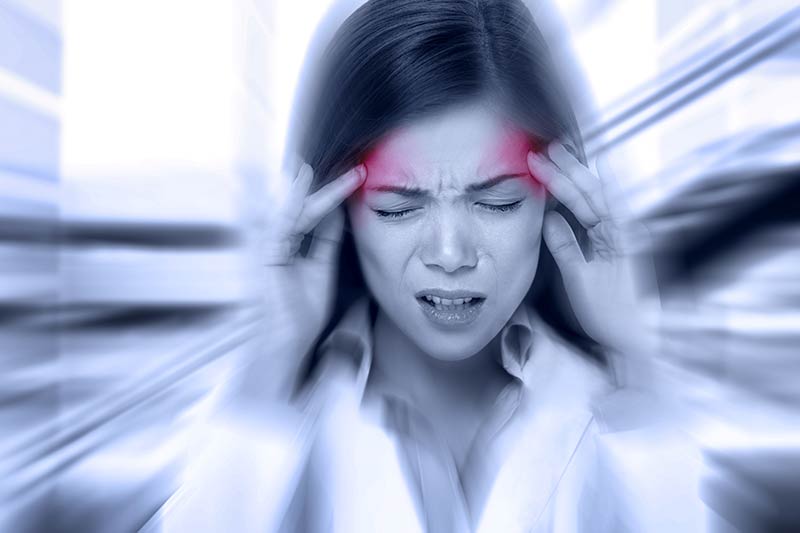
In a study of health professionals working in high-risk areas in Singapore, they were mandated to wear personal protective equipment (PPE), including an N95 face mask, when caring for patients. Most health professionals developed a headache or experienced exacerbation of their pre-existing headache symptoms related to wearing a face mask. [1]
2. Face-masks can cause loss of consciousness
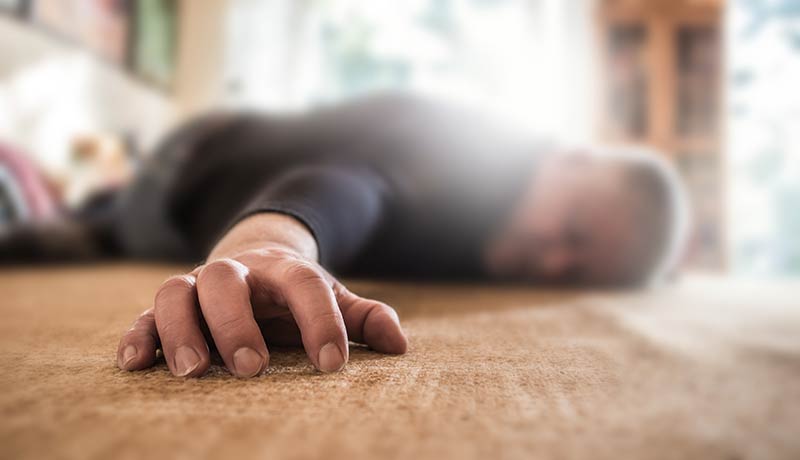
Hypoxia is often associated with staying at high altitudes, the so-called altitude sickness. In aviation, hypoxia is also a common term, because it occurs almost immediately when the cabin pressure drops at great heights. [2]
Known and proven consequences of mild altitude sickness are headache, nausea, vomiting, dizziness and shortness of breath. However, mild altitude sickness can progress to severe altitude sickness. Headaches and shortness of breath worsen and also occur at rest, especially at night. You feel increasingly gloomy and can eventually become unconscious.
3. Causes respiratory problems
due to increased airway resistance
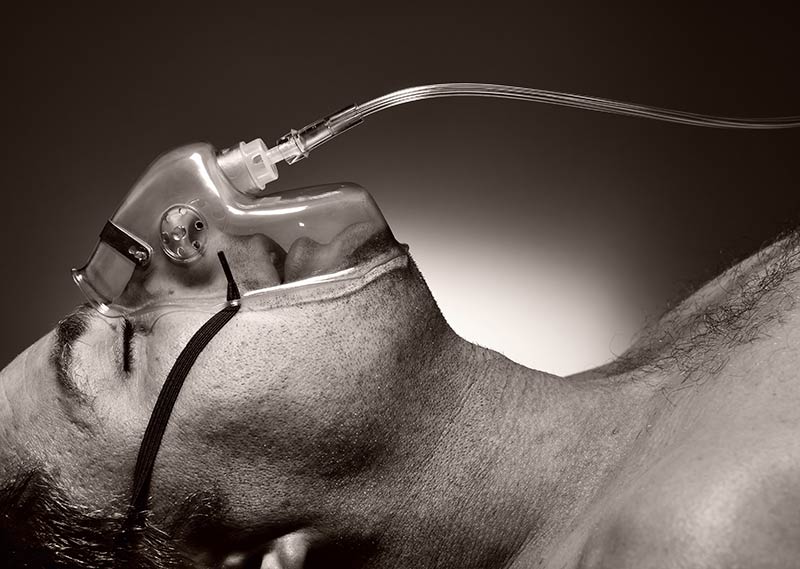
A parallel group study at the National University Hospital of Singapore compared the effects of wearing a surgical face mask for a long time. The conclusion: There is an increase in nasal resistance after three hours of wearing a surgical face mask, possibly due to physiological nasal changes rather than the size of the nasal airways. Nasal resistance was not restored even after removing the face mask for an hour and a half. [3]
4. Face masks cause arteriosclerosis, increases risk of heart attacks and strokes
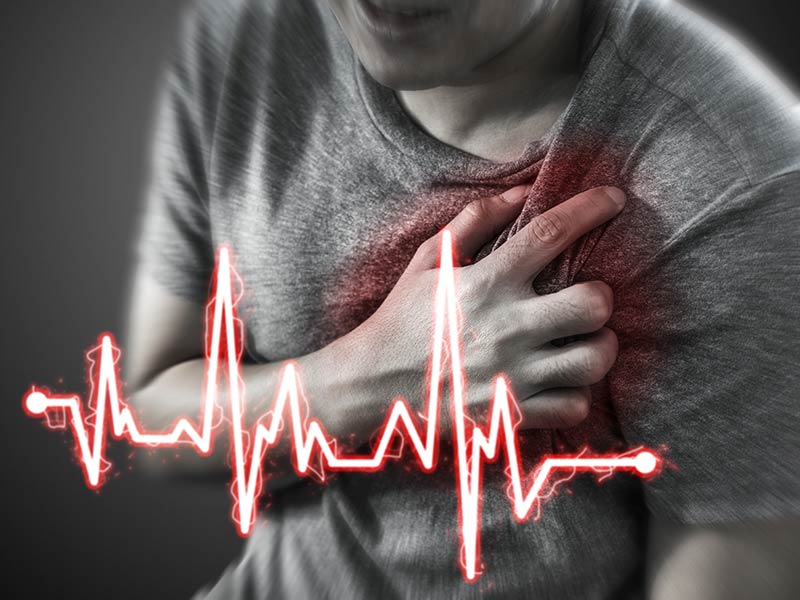
Chronic periodic hypoxia causes atherosclerosis, or arterial disease. [4] Artery disease - also known as arteriosclerosis - is an insidious disease process of fat accumulation in the inner lining of arteries. As the vessel wall subsequently thickens, the arteries slowly narrow and the flow is hindered. The tissue downstream therefore receives less oxygenated blood. A short-term danger is that the weakened artery wall tears open, leading to clots in the blood that can completely occlude an artery.
The consequences of arterial disease can be serious. Chest pain limits a person's range for the rest of life. After a heart attack or stroke , life will never be the same again, despite impressive medical technology. [5]
5. Deterioration of lung function and reduced immunity
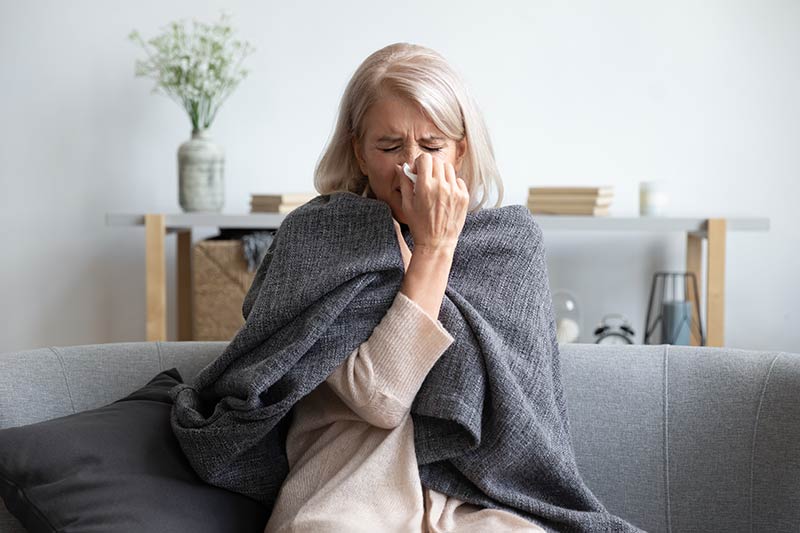
This study was conducted among surgeons to evaluate whether or not the surgeon's oxygen saturation of haemoglobin was affected by the surgical mask during major surgeries. Blood oxygenation (supply of oxygen so that tissues can perform their function) was measured before the operations and at the end of the operations. The researchers found that the mask significantly reduced oxygen levels in the blood. The longer the mask is worn, the more the oxygen level in the blood drops. [6]
The significance of these findings is that a decrease in oxygen content (hypoxia) is associated with a reduced immunity. Studies have shown that hypoxia can inhibit the group of major immune cells. These immune cells are used by the body to fight viral infections. [7]
6. Face-masks enhance the development of tumors
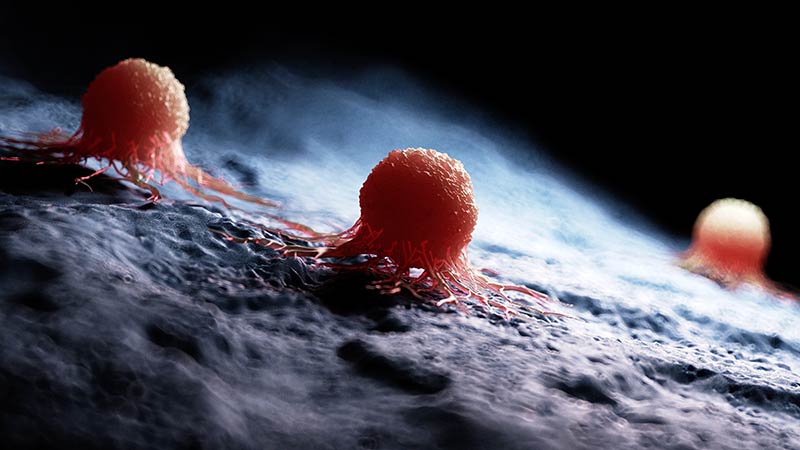
This is especially dangerous for people with cancer, especially with metastases. Hypoxia appears to enhance inflammation and increase invasion and migration of GBM stem cells (a specific malignant subpopulation of tumour cells). Because GBM stem cells are such fast-growing tumours, they quickly outgrow their blood supply, leading to inadequate blood flow into the tumour and frequent necrosis (the final stage of cell death).
Hypoxia within the primary tumour is one of the causal factors associated with the development of the metastases. Increased hypoxic response in tumour cells is associated with an elevated tumour stage and poor prognosis in various cancer types and has recently been associated with the formation of pre-metastatic (pre-metastatic) niches in breast cancer. [8] [9] [10]
7. Amplification of the viral infection leads to damage to the central nervous system
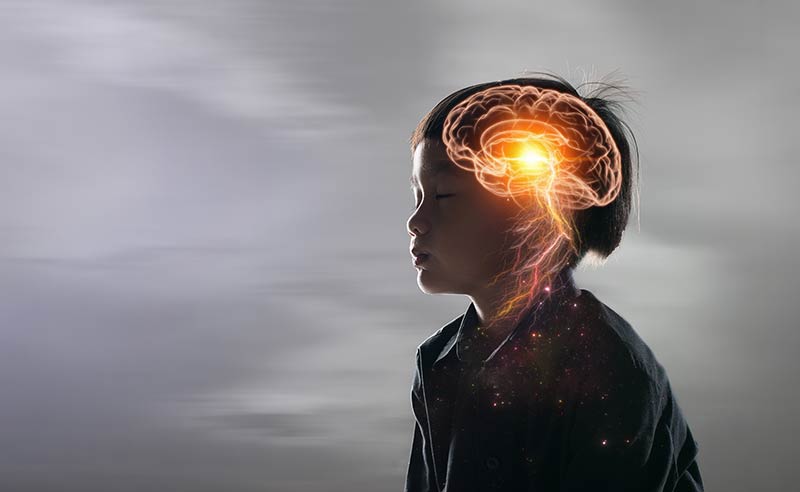
When a person is infected with a respiratory virus, part of the virus is expelled with each breath. If someone wears a mask, especially an N95 mask or other form-fitting mask, the viruses are constantly re-inhaled, increasing the concentration of the virus in the lungs and nasal passages.
Corona virus Infections can affect the nervous system. And it is currently believed that corona viruses, along with the host's immune mechanisms, can turn these infections into persistent infections that can lead to neurological disorders.
We know that people with the worst reactions to the corona virus received the highest concentrations of the virus early on. And in some cases this leads to the deadly cytokine storm. [11] [12] [13] [14]
8. Increased concentration of the virus in the lungs and nasal passages can lead to brain damage, circulatory dysfunction and dysregulation of lung, kidney and heart function

Wearing a mask protects the exhaled viruses from escaping and concentrating in the nasal passages, penetrating the olfactory nerves and travelling into the brain. [15]
It appears that the widespread dysfunction of homeostasis, caused by damage to the lungs, kidneys, heart and circulation, has been shown to be fatal in COVID-19 patients.
Homeostasis is the process by which organisms balance the internal environment of chemical and physical processes, despite changes in the environment in which the organism is located. Homeostasis allows an organism to adapt the function of each individual organ, thereby meeting the integral needs of the body.
That said, dominant cerebral involvement only with the potential to cause cerebral enema (brain swelling) in COVID-19 can play a leading role in causing death long before systemic homeostatic dysregulation occurs.
Protective effect of face masks has not been demonstrated
There is insufficient evidence that wearing a face mask of any kind can have a significant impact in preventing the spread of this virus. [16] [17] Knowing that the virus is harmless to 98% of the population and that the chance of survival is also high in the risk groups, we as a society and everyone must ask ourselves whether we want to expose ourselves and each other to the health risks posed here. for the sake of false safety .
Therefore, before you and your loved ones put on a mask, we advise you to do good research yourself about the possible health risks.
Dr. Russell Blaylock

Dr. Russell Blaylock, author of The Blaylock Wellness Report newsletter, is a nationally recognized board-certified neurosurgeon, health practitioner, author, and lecturer. He attended the Louisiana State University School of Medicine and completed his internship and neurological residency at the Medical University of South Carolina. For 26 years, practiced neurosurgery in addition to having a nutritional practice. He recently retired from his neurosurgical duties to devote his full attention to nutritional research. Dr. Blaylock has authored four books, Excitotoxins: The Taste That Kills, Health and Nutrition Secrets That Can Save Your Life, Natural Strategies for Cancer Patients, and his most recent work, Cellular and Molecular Biology of Autism Spectrum Disorders.


